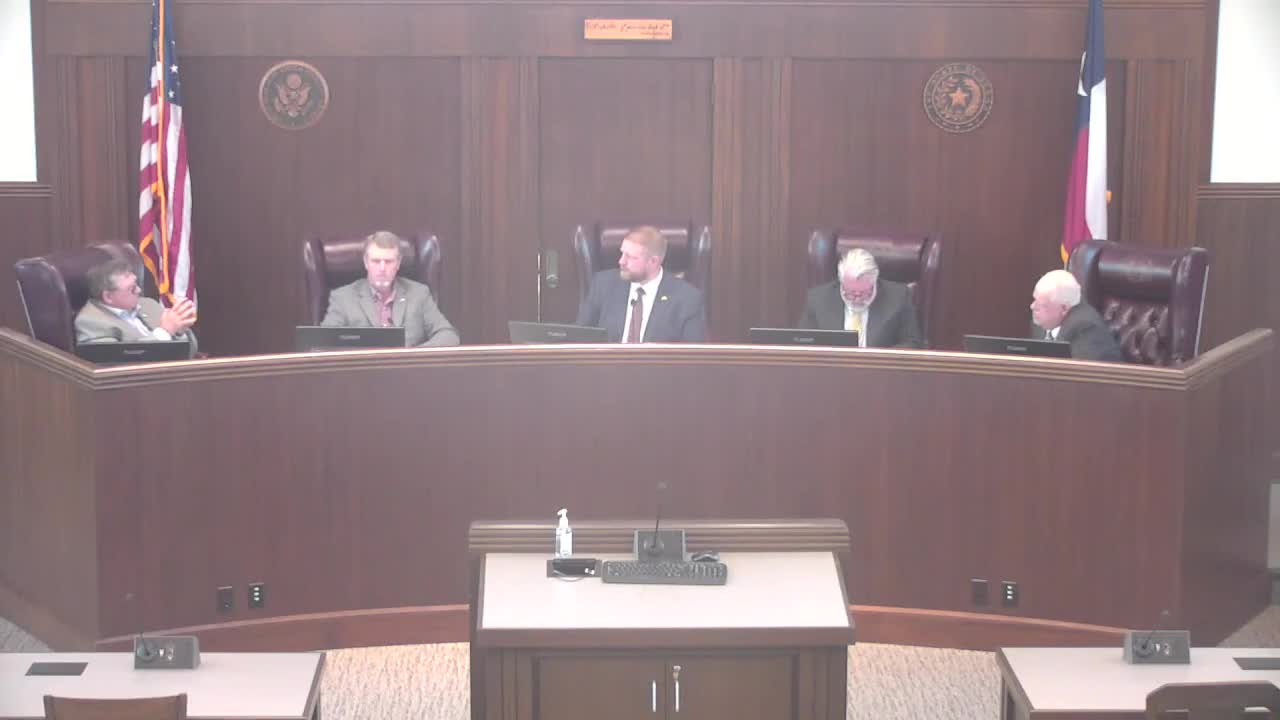County officials push for stronger developer accountability on flooding
August 05, 2024 | Guadalupe County, Texas
This article was created by AI summarizing key points discussed. AI makes mistakes, so for full details and context, please refer to the video of the full meeting. Please report any errors so we can fix them. Report an error »

In a recent government meeting, officials discussed the pressing need for improved management of development impacts, particularly concerning drainage and flood control in new subdivisions. A key point raised was the challenge of collecting adequate fees from developers to cover the costs associated with infrastructure impacts, as current regulations limit the ability to impose traditional impact fees.
One official proposed a solution involving the integration of a fee structure into subdivision regulations, suggesting that developers should be responsible for funding comprehensive reviews of their projects. This approach aims to ensure that developments do not adversely affect neighboring areas, particularly in terms of water drainage.
Concerns were voiced about the lack of coordination among engineering firms working on adjacent developments. It was highlighted that without proper oversight, one subdivision could exacerbate flooding issues for another, as evidenced by a recent case where runoff from a new development threatened a nearby property.
The discussion also touched on the county's limited expertise in managing large-scale developments, particularly those with significant downstream impacts. Officials noted that existing FEMA flood maps are outdated, dating back to the 1980s, which complicates current planning efforts.
To address these challenges, a recommendation was made to restructure the engineering department. This would involve reducing the number of engineering positions while reallocating resources to contract out expertise for larger projects. The goal is to enhance the department's capacity to manage complex developments effectively, ensuring that all potential impacts are considered during the planning stages.
Overall, the meeting underscored the need for a more proactive and integrated approach to development planning, emphasizing the importance of collaboration among engineers and developers to safeguard the community against flooding and drainage issues.
One official proposed a solution involving the integration of a fee structure into subdivision regulations, suggesting that developers should be responsible for funding comprehensive reviews of their projects. This approach aims to ensure that developments do not adversely affect neighboring areas, particularly in terms of water drainage.
Concerns were voiced about the lack of coordination among engineering firms working on adjacent developments. It was highlighted that without proper oversight, one subdivision could exacerbate flooding issues for another, as evidenced by a recent case where runoff from a new development threatened a nearby property.
The discussion also touched on the county's limited expertise in managing large-scale developments, particularly those with significant downstream impacts. Officials noted that existing FEMA flood maps are outdated, dating back to the 1980s, which complicates current planning efforts.
To address these challenges, a recommendation was made to restructure the engineering department. This would involve reducing the number of engineering positions while reallocating resources to contract out expertise for larger projects. The goal is to enhance the department's capacity to manage complex developments effectively, ensuring that all potential impacts are considered during the planning stages.
Overall, the meeting underscored the need for a more proactive and integrated approach to development planning, emphasizing the importance of collaboration among engineers and developers to safeguard the community against flooding and drainage issues.
View the Full Meeting & All Its Details
This article offers just a summary. Unlock complete video, transcripts, and insights as a Founder Member.
✓
Watch full, unedited meeting videos
✓
Search every word spoken in unlimited transcripts
✓
AI summaries & real-time alerts (all government levels)
✓
Permanent access to expanding government content
30-day money-back guarantee

